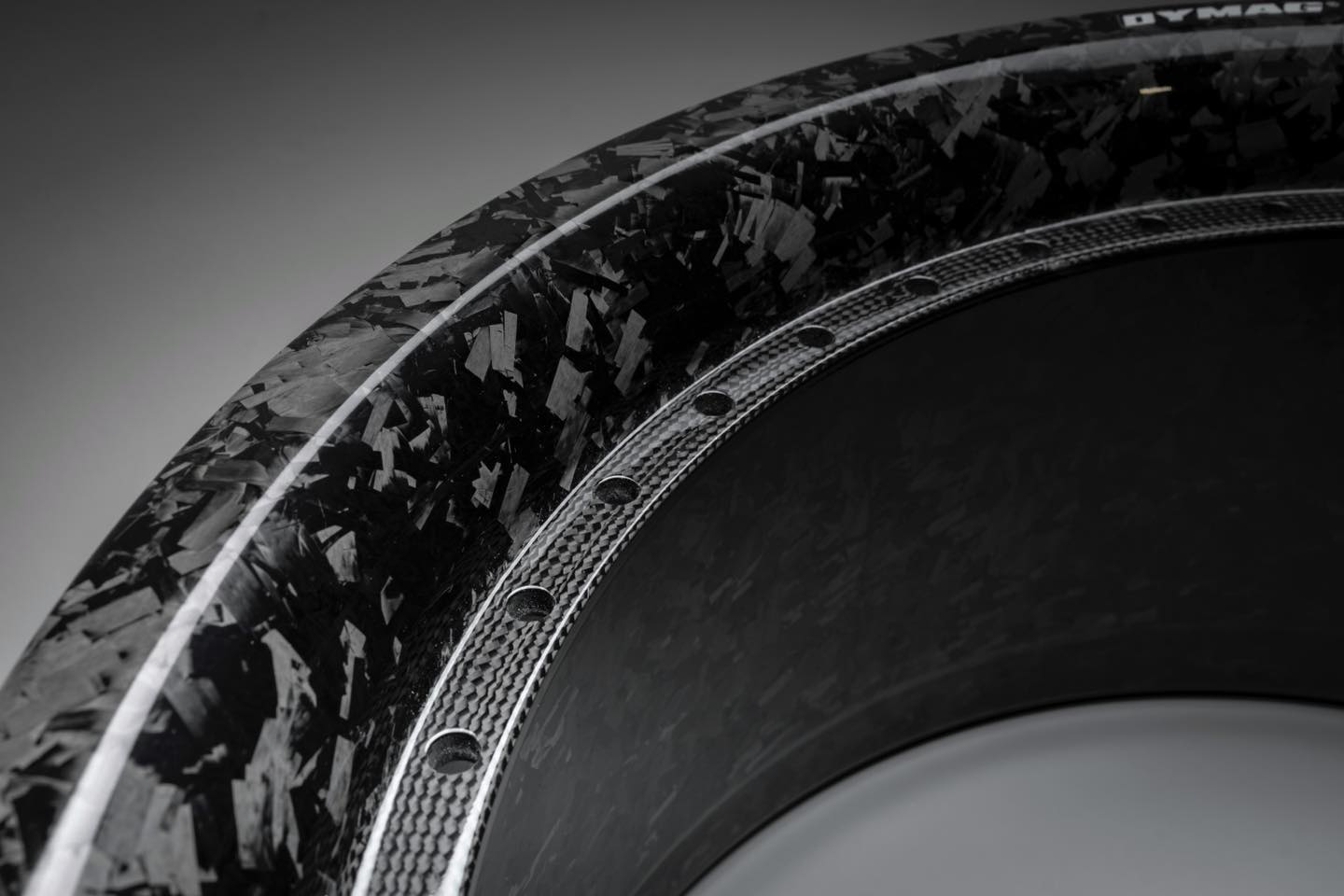Carbonfibre is popular with engineers and though it doesn’t look like it would be strong, it can be up to 10 times stronger than steel. But it is not just strength that makes it popular in many industries, especially automotive, but also its lightness which can be up to 5 times less than steel.
Even lower unsprung weight
It’s therefore ideal for wheels which make up unsprung weight as lighter wheels have a positive impact on performance. Less weight to rotate means less energy needed which can be used for acceleration and lower weight also has benefits in steering and handling.

Carbonfibre wheels have been around for almost 50 years, having been first used on a Citroen in a rally. However, at that time, such wheels (actually of carbon resin) were more of prototypes and it would not be until 2013 that Koenigsegg would manufacture single-piece wheels of carbonfibre for its supercars.
Carbonfibre wheels are still limited in use due to their high cost: such wheels for cars like the Ford GT cost around US$5,000 (about RM23,400) each and are not wheels which you could get easily like the plentiful alloy wheels.

Even more advanced are carbon hybrid wheels, which combine a carbonfibre outer rim with a forged aluminium or magnesium centrepiece.
Dymag was the first company to commercialise such wheels in 2004 and since then, they have been chosen as special options for some sportscars.
40% lighter than traditional alloy wheels
As well as being up to 40% lighter than a traditional forged aluminium wheel, Dymag says its carbon hybrid wheel brings major gains in reduced unsprung mass and reduced moment of inertia, with less energy required to accelerate and brake.

Another dynamic benefit is a reduced gyroscopic force, thanks to the lightness of the wheel itself, which means less steering effort is required, and enhancing steering feedback.
Strength and durability are also greatly improved over equivalent alloy wheels or full carbonfibre wheels. A carbon hybrid wheel can bend and spring back in the event of an unusually high load or sharp impact – rather than shattering – enhancing safety.
Carbon hybrid wheels also bring aesthetic advantages for carmakers’ products. With the forged aluminium or magnesium centrepiece, designers have greater design flexibility than a solid carbonfibre wheel.

Advantageous for EVs
With more electric vehicles being introduced into the market, the advantages of Dymag’s wheels are valuable too. Carbonfibre wheels can offer weight-savings in excess of 50% over traditional cast alloy wheels (depending on size and construction), so that is advantageous for EVs where every bit of weight that can be saved will contribute to better range.
Carbonfibre’s unique properties can also reduce Noise, Vibration and Harshness (NVH) too. This will also be appreciated by engineers as EVs run more quietly than vehicles with combustion engines which have the engine sound masking unwanted noises.
Teaming up with Hankuk Carbon
Since 2022, Dymag has Hankuk Carbon, a leading Korean manufacturer of advanced carbon materials, to accelerate global mass production of its wheel technology. “The strategic partnership between Dymag and Hankuk Carbon will enable a step change in the production and supply of state-of-the-art carbon composite wheels to the world’s leading automotive OEMs, bringing not only significantly higher volumes but also greater cost efficiencies via scalable, localised manufacturing,” said Dymag CEO, Tom de Lange.

The company is in advanced stages of discussion with a number of carmakers to supply its wheels as original equipment or as options. One company which it has announced a working relationship with is Hyundai, which will collaborate on the development of wheels using the advanced carbon hybrid wheel technology for its N Performance products.
